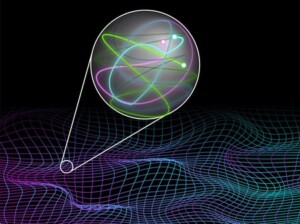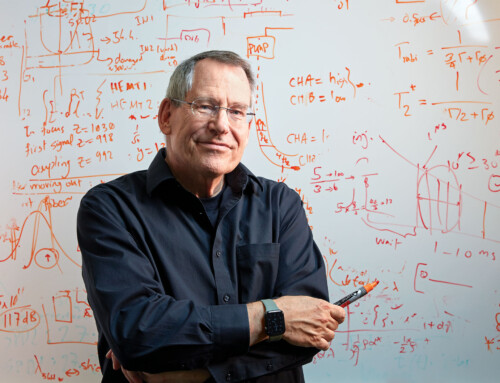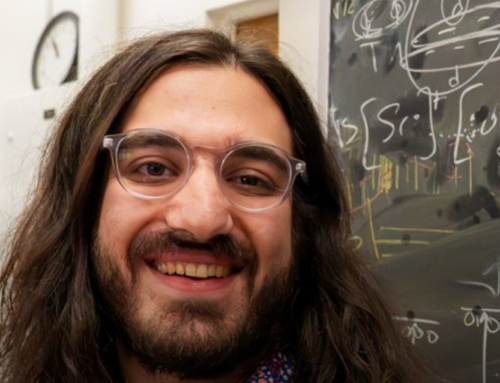
Researchers have discovered that complex random behaviors naturally emerge from even the simplest, chaotic dynamics in a quantum simulator. This illustration zooms into one such complex set of states within an apparently smooth quantum system. Credit: Adam Shaw
Producing quantum states at random has become increasingly important in modern quantum science, with applications both theoretical and practical. In particular, ensembles of such randomly-distributed, but pure, quantum states underlie our understanding of complexity in quantum circuits and black holes, and have been used for benchmarking quantum devices in tests of quantum advantage. However, creating random ensembles has necessitated a high degree of spatio-temporal control, placing such studies out of reach for a wide class of quantum systems. Here we solve this problem by predicting and experimentally observing the emergence of random state ensembles naturally under time-independent Hamiltonian dynamics, which we use to implement an efficient, widely applicable benchmarking protocol.
Members of the Endres group demonstrate a novel way to measure a quantum device’s accuracy. The key to their new strategy is randomness.”We are interested in better understanding what happens when the information is scrambled,” Joonhee Choi says. “And by analyzing this behavior with statistics, we can look for deviations in the patterns that indicate errors have been made.”
“We don’t want just a result from our quantum machines; we want a verified result,” Manuel Endres says. “Because of quantum chaos, a single microscopic error leads to a completely different macroscopic outcome, quite similar to the butterfly effect. This enables us to detect the error efficiently.”
Read more in the Caltech Media story Randomness in Quantum Machines Helps Verify Their Accuracy or the full paper, Preparing random states and benchmarking with many-body quantum chaos Joonhee Choi, Adam L. Shaw, Ivaylo S. Madjarov, Xin Xie, Ran Finkelstein, Jacob P. Covey, Jordan S. Cotler, Daniel K. Mark, Hsin-Yuan Huang, Anant Kale, Hannes Pichler, Fernando G.S.L. Brandão, Soonwon Choi, Manuel Endres, Nature 613, 468 (2023)



